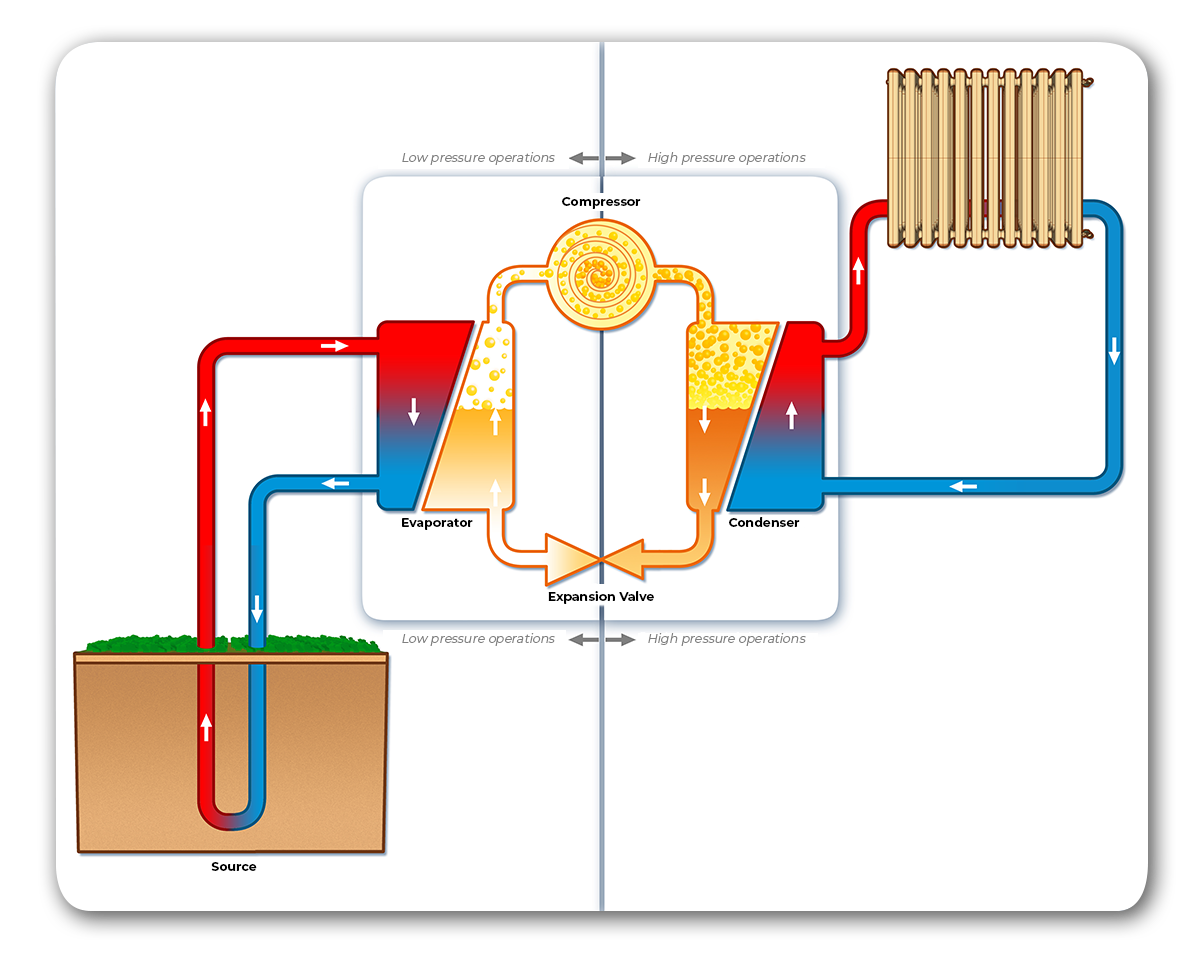THE HEAT PUMP
If we compress a gas, we generate not only an increase in pressure but also an increase in temperature.
Carnot’s principle
Nicolas Léonard Sadi Carnot


NIBE heat pumps have been chosen by Geonovis for your systems, being the top of the range in the industry. They can be placed in technical rooms, but not only, given their modern and pleasant design.
Heat pumps have been developed for transforming heat taken from the ground, aquifers or external air into thermal energy, that can be used for air conditioning in buildings. With a minimum amount of electrical energy, it transforms the incoming constant temperature to the required thermal energy needed for any type of thermohydraulic use: heating, domestic water production, and in the case of reversible systems, cooling (in passove or active mode).
The functioning of a heat pump follows on one of the basic principles of physics, known as Carnot’s cycle.
In 1824, the French scientist discovered the direct relationship existing between pressure and temperature in gaseous fluids.


Further details
The refrigeration cycle is the most well-known when it comes to heat pumps, as it is widely used in common applications, from air conditioners to refrigerators.
Simply reversing the cycle, we can switch from cold to hot water generation. Everyone is familiar with the dynamics of a domestic refrigerator, which keeps food cool by extracting heat from it and then drawing it out in the form of hot air.
Similarly, the heat pump extracts heat from underground through the fluid circulating in geothermal probes. Inside the circuit of the heat pump, such thermal energy is further enhanced thanks to consequent phases of evaporation and compression of the refrigerant gas, fulfilling the heating demand of the building.
With the same heat pump, by reversing this process, buildings can be cooled by taking heat from inside the rooms through the water in the radiant systems, and dissipating it underground through the geothermal probes.
